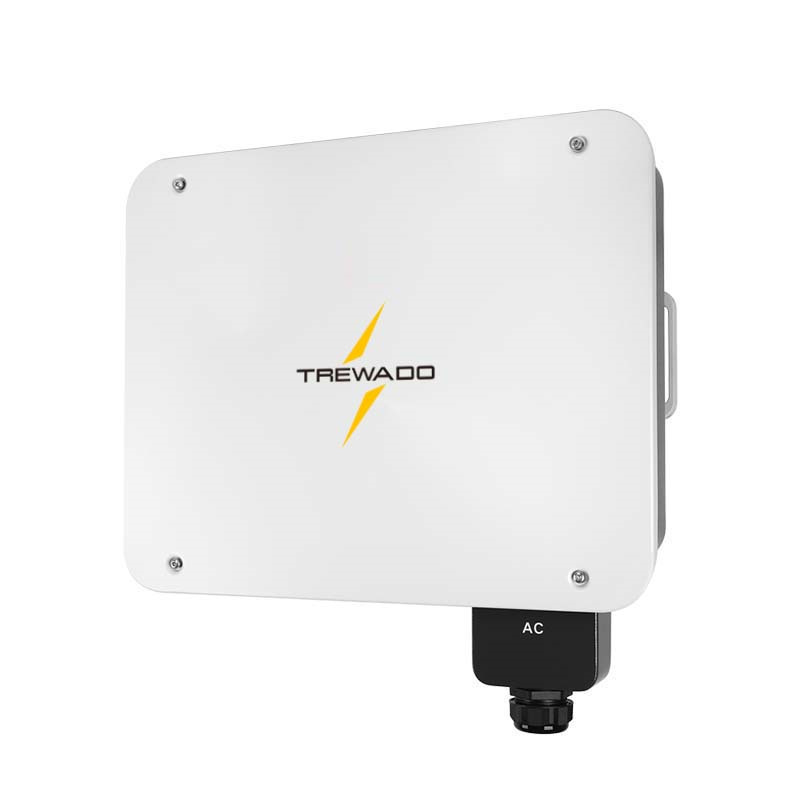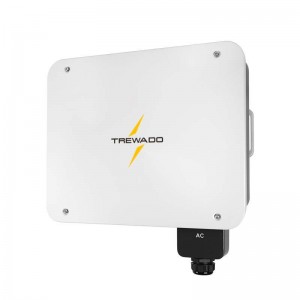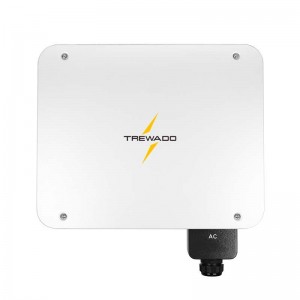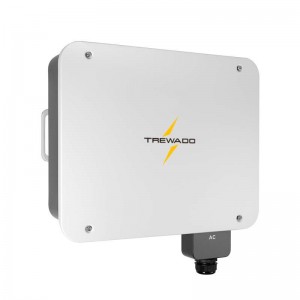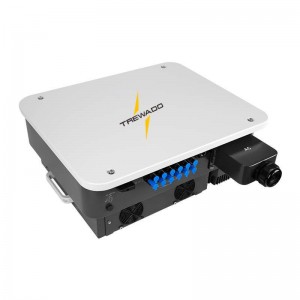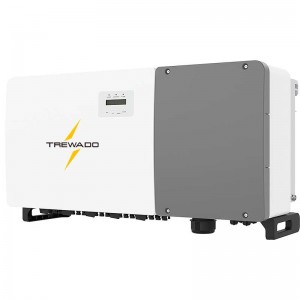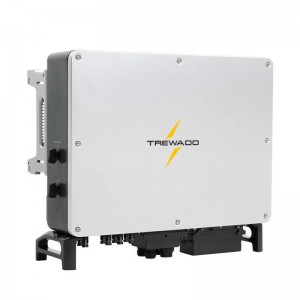10KW DC to AC Inverter Grid-Tied Solar System
Product Description
| Max. DC short-circuit current | 40 A (20 A / 20 A) |
| Output (AC) | |
| Rated AC output power | 5000 W. 10000 W |
| Max. AC Output power | 5000 VA. 10000 VA |
| Rated AC output current (at 230 V) | 21.8 A 43.6A |
| Max. AC output current | 22.8 A 43.6A |
| Rated AC voltage | 220 / 230 / 240 V |
| AC voltage range | 154 – 276 V |
| Rated grid frequency / Grid frequency range | 50 Hz / 45 – 55 Hz, 60 Hz / 55 – 65 Hz |
| Harmonic (THD) | < 3 % (at rated power) |
| Power factor at rated power / Adjustable power factor | > 0.99 / 0.8 leading – 0.8 lagging |
| Feed-in phases / Connection phases | 1/1 |
| Efficiency | |
| Max. efficiency | 97.90% |
| European efficiency | 97.3 % 97.5 % |
| Protection | |
| Grid monitoring | Yes |
| DC reverse polarity protection | Yes |
| AC short-circuit protection | Yes |
| Leakage current protection | Yes |
| Surge Protection | DC typeII/ACtypeII |
| DC switch | Yes |
| PV string current monitoring | Yes |
| Arc fault circuit interrupter (AFCI) | Optional |
| PID recovery function | Yes |
| General Data | |
| Dimensions (W*H*D) | 410 * 270* 150 mm |
| Weight | 10 kg |
| Mounting method | Wall-mounting bracket |
| Topology | Transformerless |
| Degree of protection | IP65 |
| Operating ambient temperature range | -25 to 60 °C |
| Allowable relative humidity range (non-condensing) | 0 – 100 % |
| Cooling method | Natural cooling |
| Max. operating altitude | 4000 m |
| Display | LED digital display & LED indicator |
| Communication | Ethernet / WLAN / RS485 / DI (Ripple control & DRM) |
| DC connection type | MC4 (Max. 6 mm2) |
| AC connection type | Plug and play connector (Max. 6 mm2) |
| Grid compliance | IEC/EN62109-1/2, IEC/EN62116, IEC/EN61727, IEC/EN61000-6-2/3, EN50549-1, AS4777.2, ABNT NBR 16149, ABNT NBR 16150, UNE 217002:2020, NTS V2 TypeA, CEI 0-21:2019, VDE0126-1-1/A1 (VFR-2019), UTE C15-712, C10/11, G98/G99 |
| Grid Support | Active & reactive power control and power ramp rate control |
HIGH YIELD
Compatible with high power PV modules and bifacial modules
Lower startup & wider MPPT voltage range Built-in smart PID recovery function
USER FRIENDLY SETUP
Plug and play installation
Light and compact with optimized heat dissipation design
SAFE AND RELIABLE
Integrated arc fault circuit interrupter Built-in Type II DC&AC SPD
Corrosion protection rating at C5
SMART MANAGEMENTE
Real time data (10 seconds refresh sample) 24/7 live monitoring both online and with integrated display
Online IV curve scan and diagnosis
What is On-grid Inverter
There are two types of electricity. There is AC and there is DC. An on-grid inverter is used to convert DC or direct current into AC alternating current. Appliances in our homes are designed to run off of an AC supply and they get that from the electrical outlets which all provide AC electricity. However electricity produced by such as solar panels and batteries produce DC electricity, so if users want to power your electrical devices from renewable sources or battery banks, then they need to convert DC electricity into AC electricity, and this is why inverters are essential in renewable energy solutions..
How do On-grid Inverters works
The inverter consists of a number of electronic switches known as IGBTs. The opening and closing of the switches is controlled by a controller. They can open and close super fast in pairs to control the flow of electricity by controlling the path which the electricity takes and how long it flows in the different paths. It can produce AC electricity from the DC source. It can use the controller to automatically do this again and again and again. if it switch that 120 times per second then 60 Hertz electricity could be gained; and if it switch that 100 times per second and you would get 50 Hertz electricity.
In many countries, households or companies with on-grid inverter systems can resell the electricity they generate to the power company. There are several different ways to get subsidy if electricity is sent back to the grid. Households or companies with renewable energy equipment receive subsidies based on the net energy they send back to the grid. We can simply calculate how much electricity payment the device can save for household per year. Big power DC to AC Inverter Grid-Tied Solar System plays an important role in household spend. The extra spend we save from electricity could be moved on the education and life.

